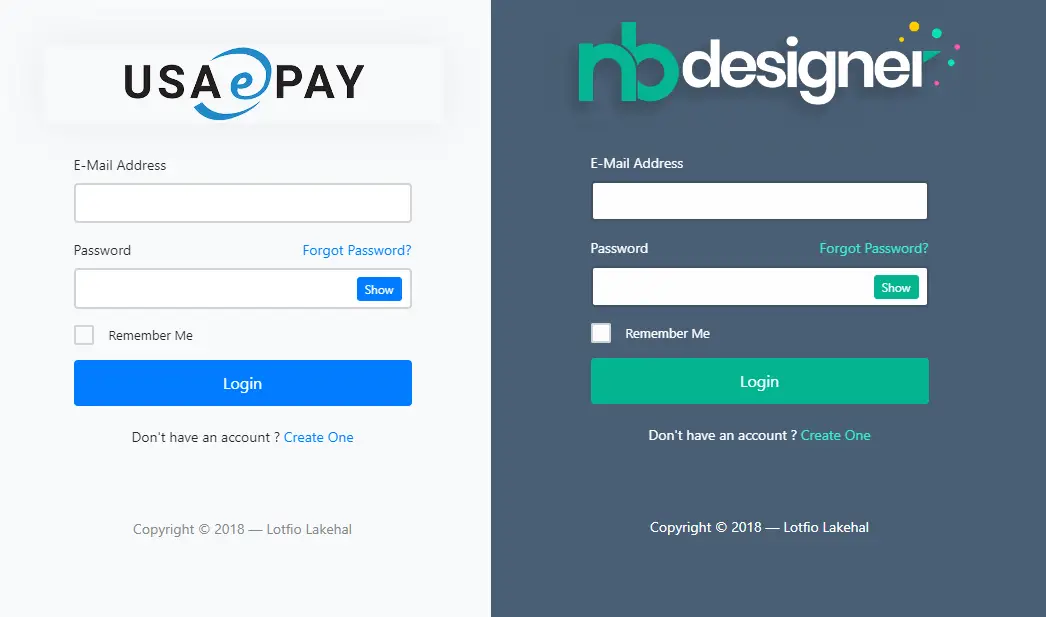Unable to resolve service for type 'Microsoft.AspNetCore.Identity.RoleManager'
By Tan Lee Published on May 31, 2024 2.27K
The most likely cause is that you haven't properly registered ASP.NET Core Identity services in your application's dependency injection container.
If you got an error when running the app and accessing the Roles controller as shown below.
System.InvalidOperationException: Unable to resolve service for type
An unhandled exception occurred while processing the request. InvalidOperationException: Unable to resolve service for type 'Microsoft.AspNetCore.Identity.RoleManager`1[Microsoft.AspNetCore.Identity.IdentityRole]' while attempting to activate 'BlogEngine.Controllers.RolesController'. Microsoft.Extensions.DependencyInjection.ActivatorUtilities.GetService(IServiceProvider sp, Type type, Type requiredBy, bool isDefaultParameterRequired)
The error message you're encountering typically occurs in ASP.NET Core applications when there's a missing service registration. In this case, it seems like you're trying to use RoleManager from Microsoft.AspNetCore.Identity but haven't registered it in your dependency injection container.
To resolve the issue of being unable to resolve service for type 'Microsoft.AspNetCore.Identity.UserManager', ensure that you've added the necessary services for ASP.NET Core Identity in your Startup.cs file's ConfigureServices method.
In ASP.NET Core, Identity is a library that provides user registration, login, and other related features like password recovery, two-factor authentication, and more.
Configure Identity in Startup.cs (or Program.cs in .NET 6+)
In the ConfigureServices method, add your configure Identity services as shown below.
public void ConfigureServices(IServiceCollection services)
{
// Add EF services to the services container.
services.AddDbContext<ApplicationDbContext>(options =>
options.UseSqlServer(Configuration.GetConnectionString("DefaultConnection")));
// Add ASP.NET Core Identity
services.AddIdentity<ApplicationUser, IdentityRole>()
.AddEntityFrameworkStores<ApplicationDbContext>()
.AddDefaultTokenProviders();
// Other your service registrations
services.AddControllersWithViews();
services.AddRazorPages();
}For ASP.NET Core 6 and later (Program.cs):
var builder = WebApplication.CreateBuilder(args);
// Add services to the container.
builder.Services.AddDbContext<ApplicationDbContext>(options =>
options.UseSqlServer(builder.Configuration.GetConnectionString("DefaultConnection")));
builder.Services.AddIdentity<ApplicationUser, IdentityRole>()
.AddEntityFrameworkStores<ApplicationDbContext>()
.AddDefaultTokenProviders();
builder.Services.AddControllersWithViews();
builder.Services.AddRazorPages();
var app = builder.Build();
// Configure the HTTP request pipeline.
if (app.Environment.IsDevelopment())
{
app.UseDeveloperExceptionPage();
}
else
{
app.UseExceptionHandler("/Home/Error");
app.UseHsts();
}
app.UseHttpsRedirection();
app.UseStaticFiles();
app.UseRouting();
app.MapControllerRoute(
name: "default",
pattern: "{controller=Home}/{action=Index}/{id?}");
app.MapRazorPages();
app.Run();Ensure that you replace ApplicationUser and ApplicationDbContext with your custom user and context types if you've overridden them.
Create an Application User class
You can create a custom ApplicationUser class if you need to add additional properties to the user, like FirstName, LastName, etc.
using Microsoft.AspNetCore.Identity;
public class ApplicationUser : IdentityUser
{
public string FirstName { get; set; }
public string LastName { get; set; }
}Make sure to update AddIdentity<ApplicationUser, IdentityRole>() accordingly in ConfigureServices.
Next, you need to create and apply migrations for the Identity schema.
Run the following commands:
dotnet ef migrations add InitialCreate dotnet ef database update
This will create the necessary tables for managing users, roles, etc., in your database.
If you don't use custom user, you can add this row to Startup.cs file
services.AddIdentity<IdentityUser, IdentityRole>() .AddEntityFrameworkStores<ApplicationDbContext>();
Add the Connection String
In your appsettings.json file, you need to add a connection string to your database:
{
"ConnectionStrings": {
"DefaultConnection": "your connection string"
},
}In your controler, you can use like this.
// asp net core rolemanager
public class RolesController : Controller
{
RoleManager<IdentityRole> _roleManager;
UserManager<IdentityUser> _userManager;
public RolesController(RoleManager<IdentityRole> roleManager, UserManager<IdentityUser> userManager)
{
_roleManager = roleManager;
_userManager = userManager;
}
}Make sure that you have registered AddIdentity<IdentityUser, IdentityRole>() with the correct DbContext in your DI container.
If you've already added the necessary services and still encounter the error, double-check your code where you're trying to use RoleManager to ensure there are no typos or other issues.
- Implement security headers for an ASP.NET Core
- How to add security headers to an ASP.NET Core Application
- How to Initialize TagHelpers in ASP.NET Core with Shared Data
- Boost Your ASP.NET Core Website Performance with .NET Profiler
- The name 'Session' does not exist in the current context
- Implementing Two-Factor Authentication with Google Authenticator in ASP.NET Core
- How to securely reverse-proxy ASP.NET Core
- How to Retrieve Client IP in ASP.NET Core Behind a Reverse Proxy





